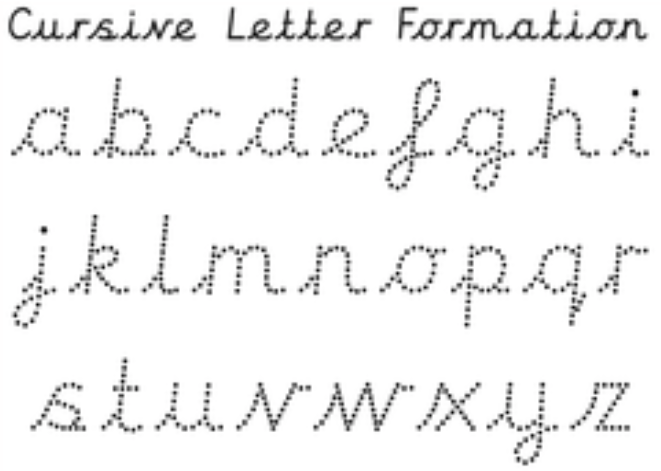English
English
AFJS English Policy
The subject of English is actually a combination of 5 different disciplines, each with its own important role to play in developing a child’s understanding and use of language. At Abbots Farm Junior School, we plan bespoke units of work to incorporate all these different elements in a cohesive, purposeful sequence. We use some of the texts and resources suggested by the CLPE Power of Reading programme to support the planning of our units.
1. Reading
This is the fundamental element of English upon which everything else is built. It is the first skill children learn as they are growing and it plays a key role in every other subject across the curriculum throughout their education and far beyond into the world of work. In the early stages of learning to read, phonics is the main focus and whilst this primarily happens in KS1, we continue to provide phonics provision for children as they move through school where needed. We also build upon the skills of phonics across the school to support with spelling in KS2.
There are a number of resources available for you to download below to help you support your child with their reading. There are also some website links full of recommended reads and reading ideas for you to take a look at.
http://schoolreadinglist.co.uk/category/reading-lists-for-ks2-school-pupils/
https://www.lovereading4schools.co.uk/
https://www.booktrust.org.uk/books-and-reading/our-recommendations/booklists/
https://www.worldbookday.com/reading-ideas-youll-love/
If your child is also working on their phonics skills, there are lots of resources and games on this website http://www.letters-and-sounds.com/
Reading Booklet for Parents
Questions for reading
AFJS Book Banding
2. Writing
The skill of writing comes after the skill of reading, as many of a child’s ideas, sentence structures and vocabulary choices come, in the first instance, from the books that they have read. It is a combination of the other 3 skills listed below plus creativity and a strong understanding of audience and purpose. When we teach children to write, we take them on a journey of building ideas and generating vocabulary, alongsisde some specific grammar teaching where needed, in order for them to have all the skills and knowledge needed to be able to write an effective piece, whatever genre of writing that may be.
3. Spelling
In order for children to be able to get their ideas down on paper and for them to be read and enjoyed by others, spelling is a key element in the writing process and an important skill that must be regularly practised. In the National Curriculum, spelling learning is broken into 2 key elements:
– spelling rules: there are many rules in spelling that can be applied to different contexts to enable a child to break down a word and think logically about how it could be spelt. This is where previously learnt phonics skills are also useful to support children in the segmenting and blending of sounds to make words, but at this stage, children have to think much more about the large number of possible letter combinations (graphemes) that can be used for each sound (phoneme).
– common exception words: what makes spelling so tricky is that, while there are many spelling rules that can be applied to support spelling, there are also many words that do not fit these rules. These are defined as ‘Common Exception Words’ and are mapped out in the National Curriculum for each year group.
To support children with practising their spellings at home, every child has their own log in for an online resource called The Spelling Shed.
If your child does not know their spelling log in, please contact their class teacher who will be able to help.
We use the Spelling Shed teaching resources to deliver in class lessons on the different spelling rules too – here are the plans for each year group to show what spelling rules your child will learn and/or recap each year:
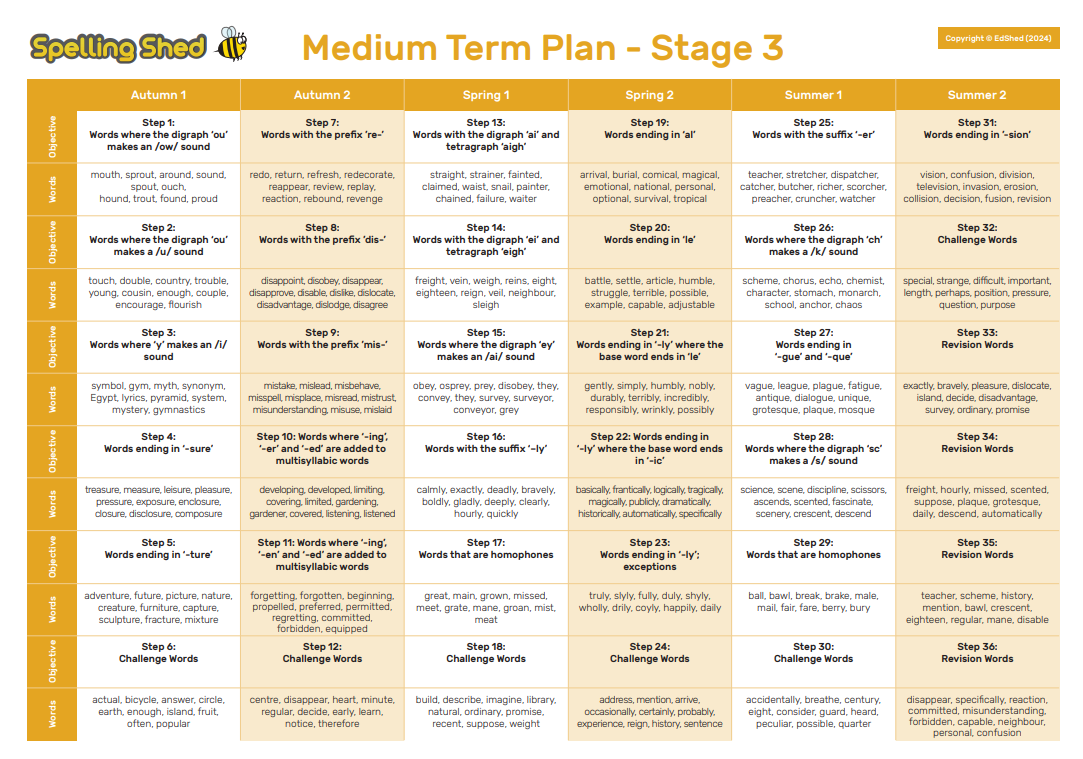
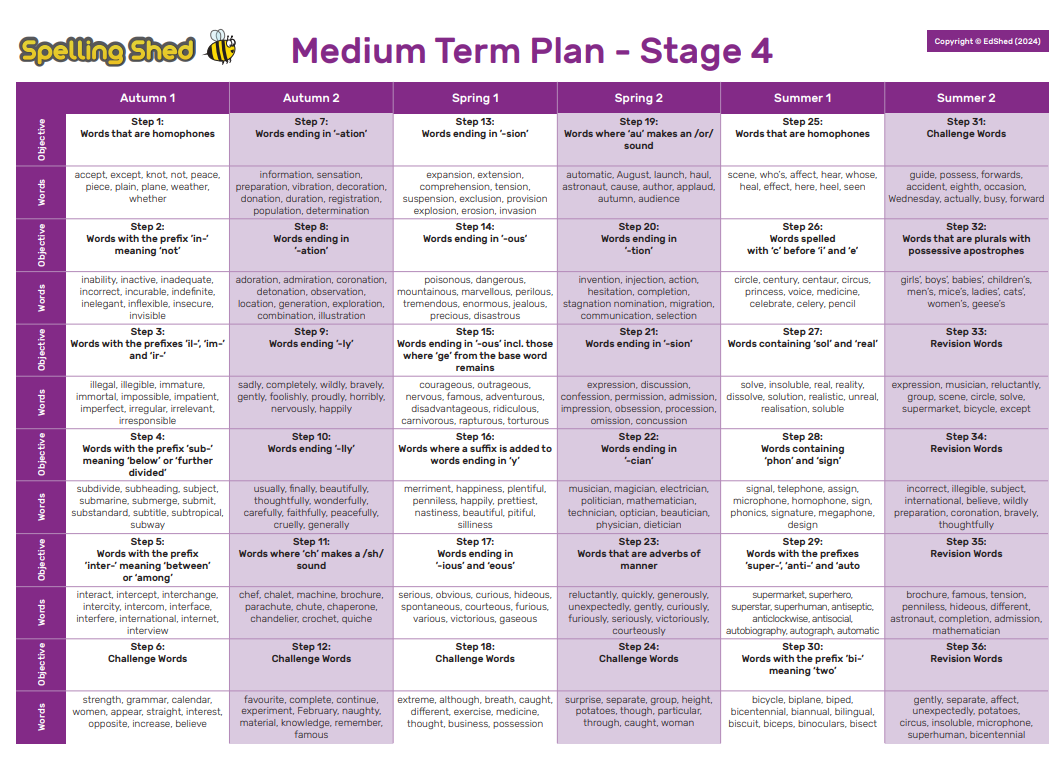
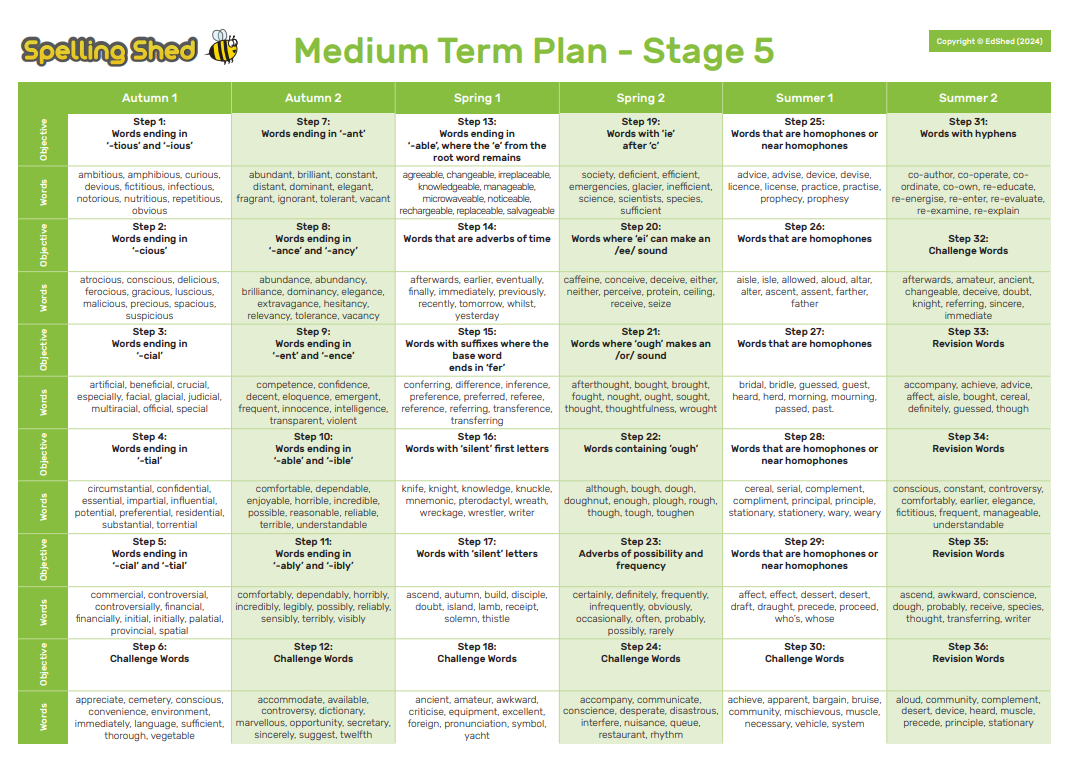
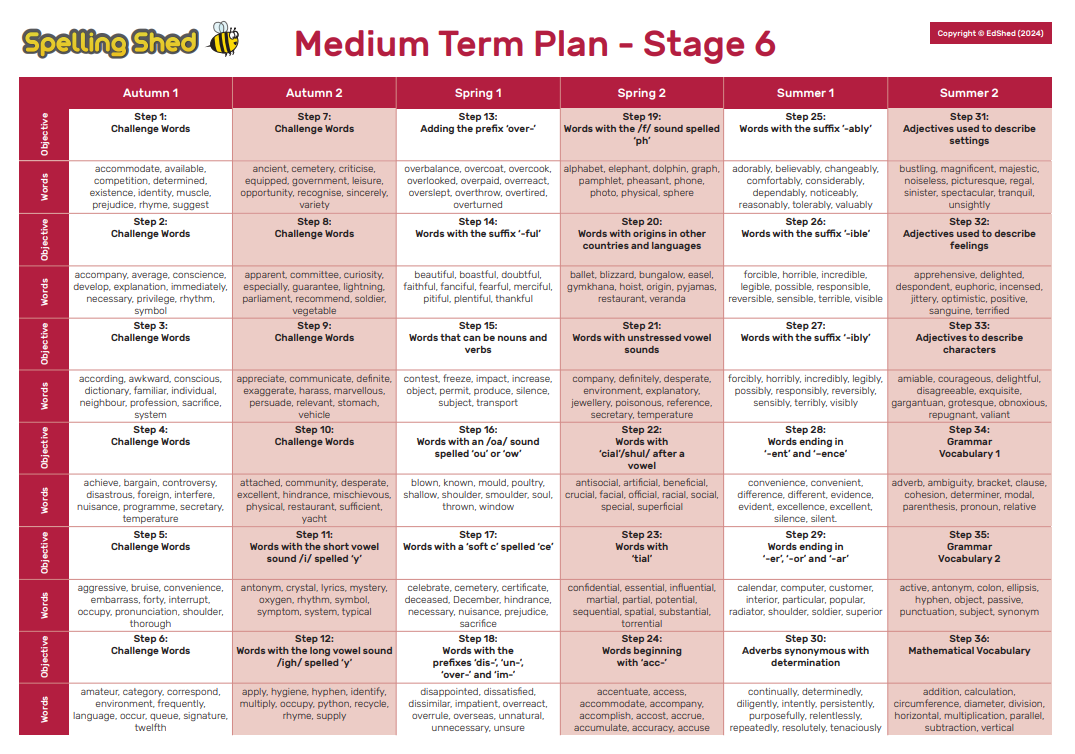
There are also a number of resources available for you to download below to help you support your child with their spelling.
Top tips for learning spellings
Ways to practise spellings
Year 1/2 common exception words
Year 3/4 common exception words
Y5/6 common exception words
4. Grammar
Grammar forms the building blocks of the English language. Many elements are learnt automatically as children begin to learn how to speak and, eventually, write. There are, however, many more complex elements of grammar that need to be taught and refined throughout a child’s educational career. At Abbots Farm, wherever possible, we include the teaching of grammar within the teaching sequence for writing, rather than as standalone lesson, as we feel it is important that children understand the impact that grammar has on their work, how it can help them alter a text for a certain effect or set the tone of a text for a particular audience or purpose.
In addition, we have recently introduced the Grammarsaurus Place Value of Punctuation and Grammar to AFJS, to support pupils in learning the building blocks of grammar at the start of the year that they can then build in to the unnits of work across the rest of the year and beyond.
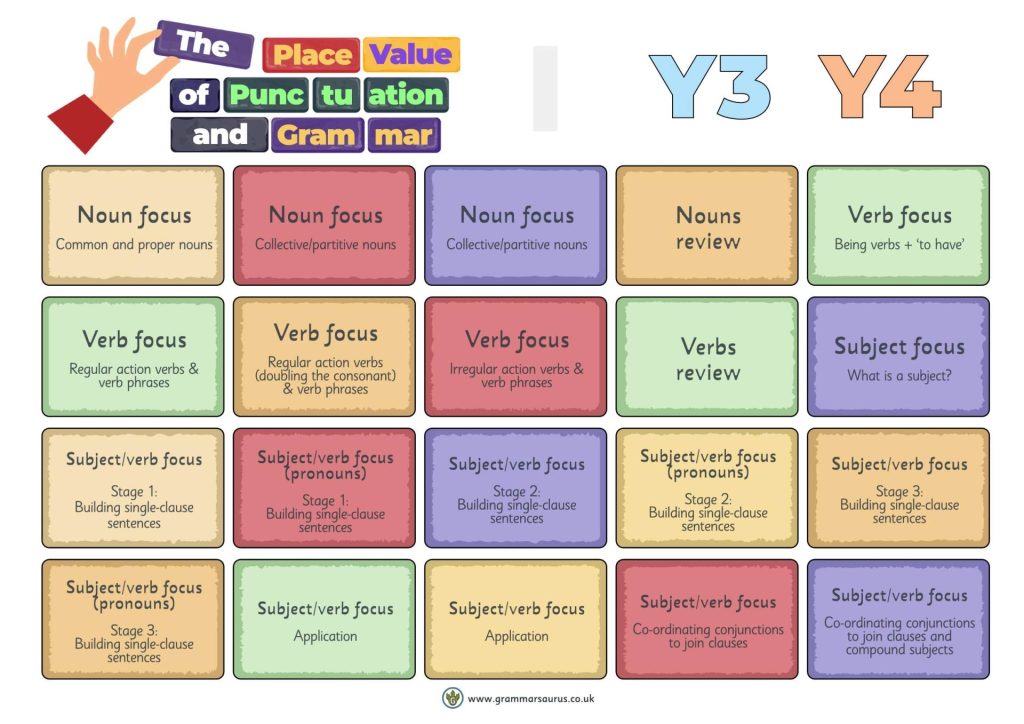
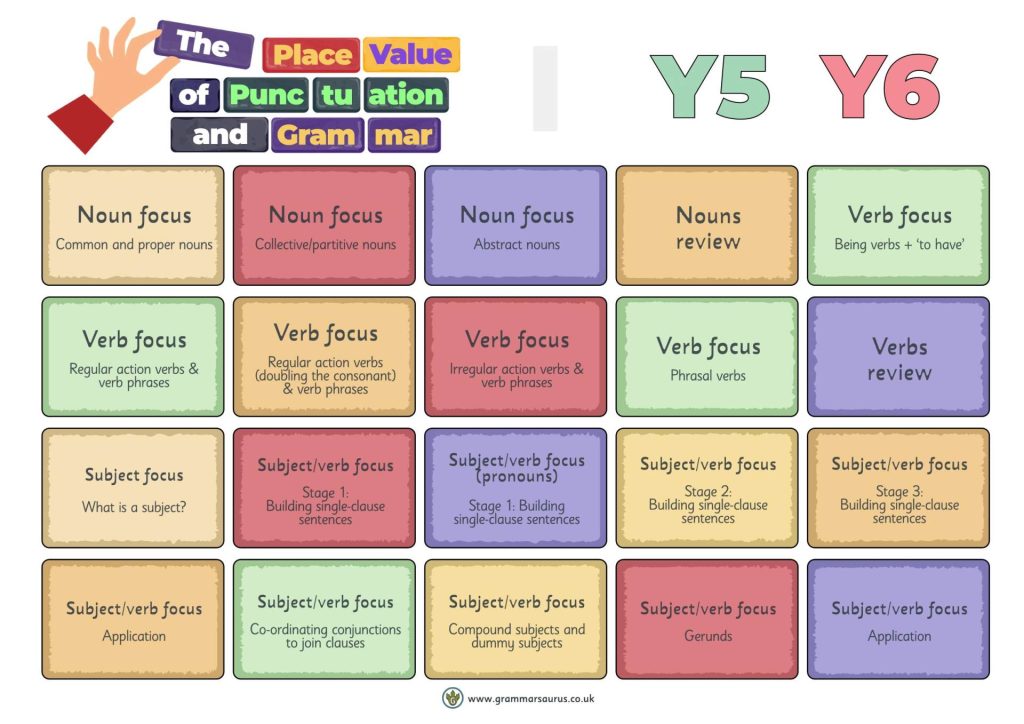
5. Handwriting
We encourage all children to use a joined, cursive script as soon as they are developmentally ready to do so, in line with the National Curriculum expectations for Key Stage 2. Like spelling, it is an important skill that needs regular practice so that it becomes an automatic process and children can then focus on the content of their writing and the enjoyment of the creativity. It is also important to support children in their development across the whole curriculum as it supports brain development and promotes links between the two sides of the brain. Joined writing particularly supports in the development of spelling, as the brain trains its muscle memory to enable children to remember the shape and movement of words, meaning that spelling becomes more automatic over time.
If you are looking for more ways to support your child with their English at home, here is a further selection of general English websites with games and resources.
http://www.crickweb.co.uk/ks2literacy.html
http://www.bbc.co.uk/bitesize/ks2/english/spelling_grammar/
http://www.bbc.co.uk/bitesize/ks2/english/
http://www.ictgames.com/literacyhttp://www.compare4kids.co.uk/literacy.php


